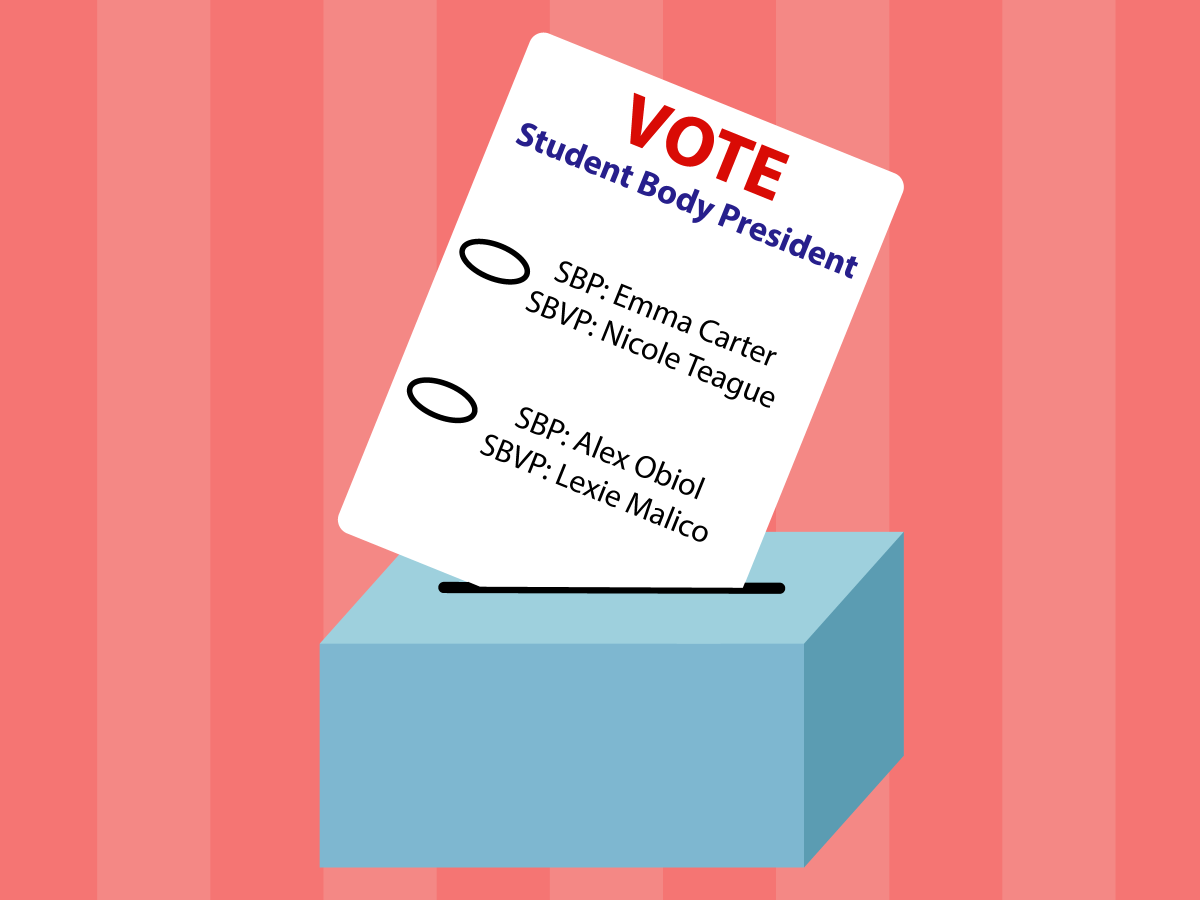With the Student Government Elections process underway and polls opening Monday, March 4 at 8 p.m., the Board of Elections has tried numerous new outreach methods in hopes of increasing voter turnout, including targeting individual colleges with traditionally low turnout.
Lee Daniel, a third-year studying biological sciences, gives an overview of the current voter turnout trends.
“We have seen less and less engagement in the voting process, so we see the number of votes going down,” Daniel said. “Looking at spring 2018, we had just a little over 5,000 votes. Those are individual votes, so 5,000 students.”
He said that the Spring 2018 SG Elections turnout was lower than previous years.
“One of the things we see a lot is voter apathy because they think Student Government doesn’t have any real power,” Daniel said. “In terms of what Student Government does, we act as a voice for students and Student Government has the ability to look at student fees and assess where that goes and what student priority is.”
Lilly Neal, a third-year studying psychology, said that in addition to promoting the SG Elections through electronic flyers on TVs in Talley Student Union and sending reminders in the weekly HOWL, Board of Elections has tried to connect with individual colleges.
“We have been reaching out to directors of outreach, or directors within the different colleges and sending them informational flyers that they can forward on to their students,” Neal said. “We want to work on how we can reach those colleges that participate less.”
Neal said that the College of Humanities and Social Sciences (CHASS) has generally had more people running in the elections, and therefore, a higher CHASS voter turnout. She said that they usually see the same trend for colleges with little or no members running in the elections.
“Textiles kind of surprised us because we have three candidates running for three seats, which before it has been one of the colleges where no one ever runs,” Daniel said. “Education is one that we don’t have anyone running in. Poole College of Management, we have one. That is inconsistent with past years, so we will be interested to see how voter turnout for that goes.”
Emily Whitfield, a third-year majoring in communications, said that this year has been the first where the Board of Elections requires candidates to submit a biography and photo.
“This year, since our intent to run form was electronic, it kind of streamlined the process,” Whitfield said. “In past years it has been optional to submit a candidate bio and a photo, but it became required with the new format of the intent-to-run form. It has an explanation of why they are running, their platform, who they are, where they are from, stuff like that. We put that and their picture together on the website.”
Daniel said that any student that is in good standing with the university can vote, and students with double majors should vote in the senate election for the college of their first major.
“You can vote online, and we are also going to have polling stations,” Neal said. “You can go to the Get Involved page and on election day, it will be the first thing that pops up. You just login, and you can do it from anywhere, on your phone or laptop. The reason that we are setting up polling locations is because we’ll have our personal laptops and can help people login. As an unbiased body, we are allowed to do that.”
Neal said that students can also bring their personal device to the polling locations for voting assistance.
“We are definitely taking this as a learning, teaching year and trying out a lot of new things that we are really excited about,” Whitfield said.
Voting opens on March 4 at 8 p.m. and closes on March 5 at 8 p.m., with results announced on March 5 at 9 p.m. For more information, students can visit the Student Government website.








